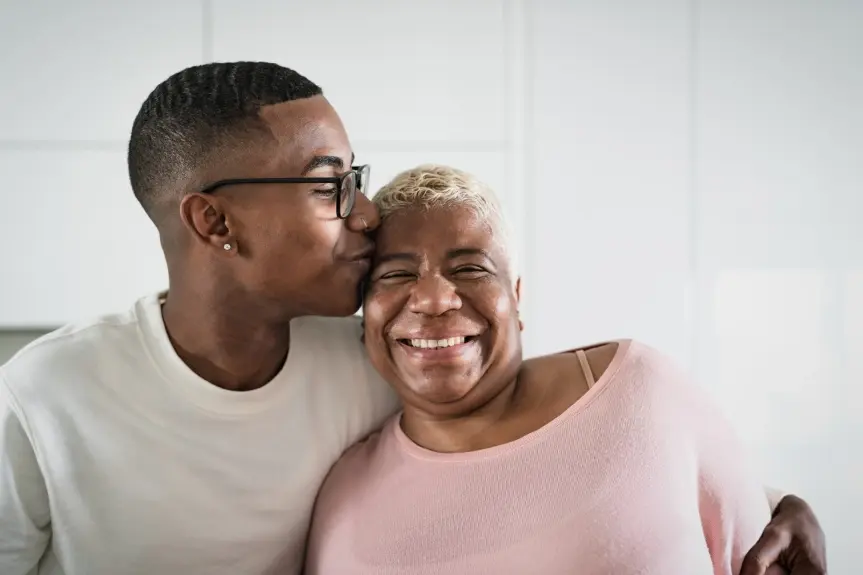Successful Aging: How grandparents can stay connected with teens
- Dec 4, 2022
- 4 min read

Q. I adore my grandchildren. Now, as they are teenagers, the relationship seems a little different with a lot of competition for their time. They are busy with friends, school activities and more. As a widowed grandmother, their relationship with me is more important than ever. Any suggestions on how to keep the bond that was established during their younger years? Many thanks. P.H.
Let’s start with an instructive look at a Stanford Medicine Children’s Health article about grandparents and teens, which asks whether grandparents hold a special place in their grandchildren’s lives – until the kids become teenagers.
The article quotes Donna M. Butts, executive director of Generations United, which promotes positive interaction between generations. According to Butts, we assume that older adults and teenagers don’t want to be with one another. That is not necessarily true, she says, noting “…if you can get past the stereotypes, you see that both ages need to feel needed, listened to and acknowledged.”
Further, the Stanford Medicine article states, it’s not only older adults who yearn for that close relationship. Teenagers often are isolated from older adults and in many cases have an “elder hunger” for the wisdom of older people, according to another voice in the piece, psychiatrist and author Arthur Kornhaber, M.D., founder of the Foundation for Grandparenting and author of “The Grandparent Solution” (2004, Jossey-Bass).
Teenage life is a time of physical and emotional change. These include changes in relationships, competition in sports and grades, scoring high on standardized tests, maximizing grade point averages and finding the level of independence from parents that work for both parent and child. And then there is the prospect of leaving home. The unconditional love and acceptance from grandparents can be a safe haven from the many stresses of adolescence.
The initiative to connect often must come from the grandparents. If we wait for the teenage grandchildren to take the lead, we may become frustrated and disappointed. One easy way is to remember birthdays and celebrate other occasions such as Halloween and Valentine’s Day with cards, notes, social media messages or even a phone call.
Gifts are great, but doing things can be more bonding than giving things. Here are a few engaging activities gleaned from the Stanford Medicine piece, as well as useful suggestions from the Reluctant Cowgirl website, to consider.
Look over some photo albums. Include some pictures from when you were young. I recently did that with my grandchildren and looked at photos from my high school days as a cheerleader and member of the student council. I also included some college pictures of dances in formal wear like cocktail dresses and tuxedos which was the ’60s trend for sorority and fraternity dances. Although it may have seemed that these events occurred in the Dark Ages, the grandkids loved the photos and the stories to go with them. And, of course, include those photos on your smartphone.
Share a hobby or skill. That might be a craft or art such as knitting, crocheting or painting, or hobbies of fishing or hiking. I recently sat at the piano with my granddaughter and offered a few preliminary lessons. To my surprise, she quickly picked up some basics and we proceeded to play some simple duets together. Each time we are together at my home, we play duets which are bonding moments for me.
Connect on social media. On average, children get their first cellphone at age 10. By adolescence, they are pros using their phones, the internet, and many social media apps. Embrace the technology and use social media including Facetime without feeling compelled to post daily. Email is considered somewhat antiquated among the younger set; texting is better. This type of communication is particularly important and effective if the grandkids are not living locally.
Engage over schoolwork and more. Many courses our grandchildren are taking were not offered in our day, such as coding and Mandarin. Yet students still are required to read some classics such as “Catcher in the Rye,” “Lord of the Flies “or “To Kill a Mockingbird.” Share your interpretations and check if they need help with their essays. And if your grandchild is involved with sports, keep up on what’s happening and attend some of those events.
Connect one-to-one, in person. Typically, one would see grandchildren at family gatherings, a wonderful environment but difficult to know one another on a deeper more personal level. So, consider having a lunch date on a regular basis such as every two weeks. Treat these growing grandkids to their favorite meal even if it might not be your favorite. Go to a movie together and let your grandchild make the selection, even if it is not your first choice.
P.H., on behalf of the many grandparents, thank you for your good question. Remember to have fun and know kindness is everything.
Helen Dennis is a nationally recognized leader on issues of aging and the new retirement with academic, corporate and nonprofit experience. Contact Helen with your questions and comments at Helendenn@gmail.com. Visit Helen at HelenMdennis.com and follow her on facebook.com/SuccessfulAgingCommunity

Comments